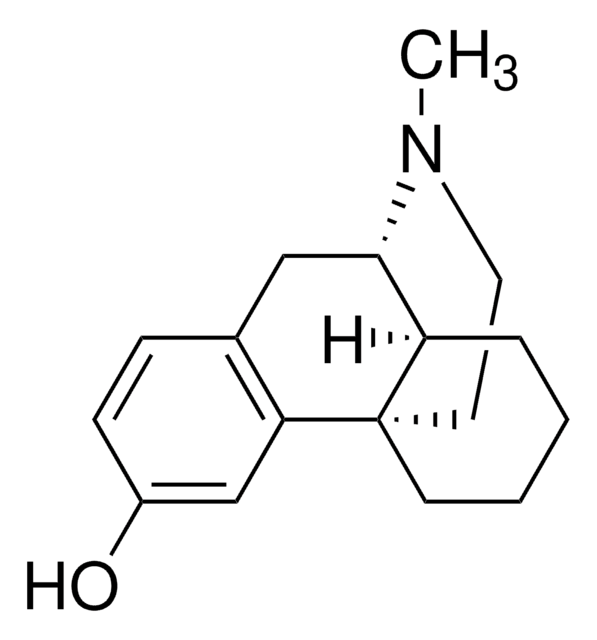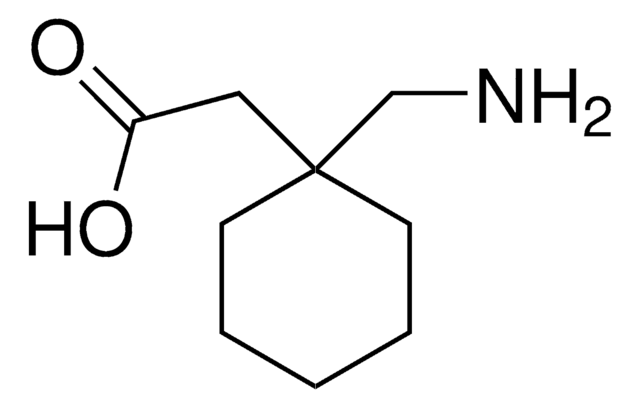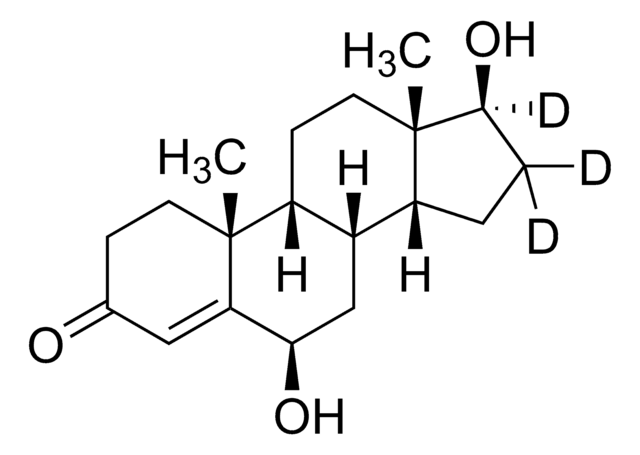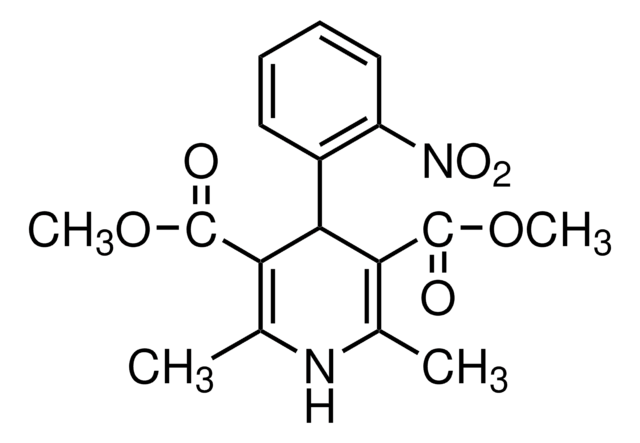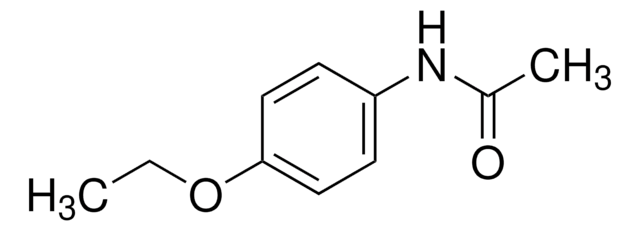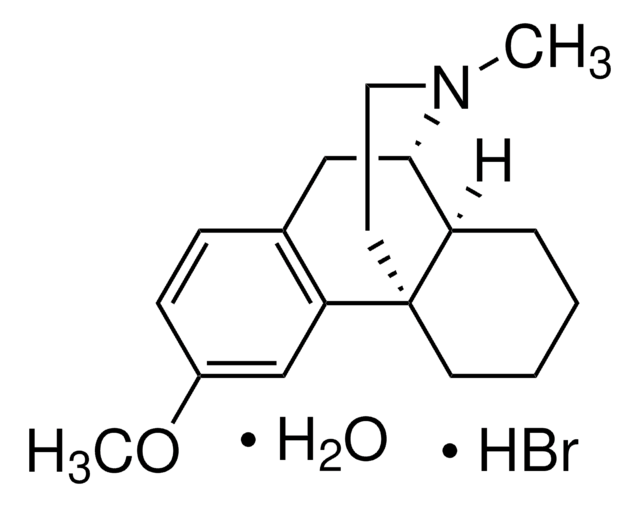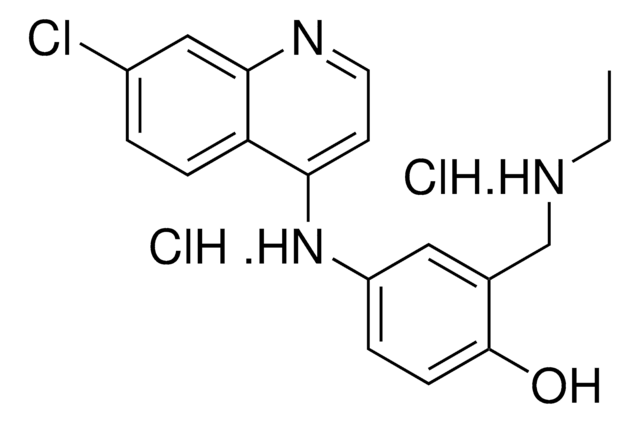D127
Dextrorphan tartrate
powder
Synonym(s):
(+)-3-Hydroxy-N-methylmorphinan (+)-tartrate salt, Dextrorphan D-tartrate
About This Item
Recommended Products
form
powder
color
white
solubility
H2O: >10 mg/mL
SMILES string
O[C@@H]([C@H](O)C(O)=O)C(O)=O.CN1CC[C@@]23CCCC[C@@H]2[C@@H]1Cc4ccc(O)cc34
InChI
1S/C17H23NO.C4H6O6/c1-18-9-8-17-7-3-2-4-14(17)16(18)10-12-5-6-13(19)11-15(12)17;5-1(3(7)8)2(6)4(9)10/h5-6,11,14,16,19H,2-4,7-10H2,1H3;1-2,5-6H,(H,7,8)(H,9,10)/t14-,16+,17+;1-,2-/m10/s1
InChI key
RWTWIZDKEIWLKQ-FEBOIHDFSA-N
Gene Information
human ... GRIN1(2902) , GRIN2A(2903) , GRIN2B(2904) , GRIN2C(2905) , GRIN2D(2906) , GRINA(2907)
Looking for similar products? Visit Product Comparison Guide
Application
Biochem/physiol Actions
Signal Word
Warning
Hazard Statements
Hazard Classifications
Acute Tox. 4 Oral
Storage Class Code
11 - Combustible Solids
WGK
WGK 3
Flash Point(F)
Not applicable
Flash Point(C)
Not applicable
Personal Protective Equipment
Certificates of Analysis (COA)
Search for Certificates of Analysis (COA) by entering the products Lot/Batch Number. Lot and Batch Numbers can be found on a product’s label following the words ‘Lot’ or ‘Batch’.
Already Own This Product?
Find documentation for the products that you have recently purchased in the Document Library.
Customers Also Viewed
Our team of scientists has experience in all areas of research including Life Science, Material Science, Chemical Synthesis, Chromatography, Analytical and many others.
Contact Technical Service